JUNGIAN & POST-JUNGIAN
CLINICAL CONCEPTS
A 12-module online certificate course on key concepts of Jungian theory and clinical application.
This course is aimed at psychotherapists from all fields, including those with an existing knowledge base of Jungian psychology, wishing to understand the fundamentals of Jungian and post-Jungian psychology in clinical practice. This is a unique focused and in-depth learning opportunity in Jungian and post-Jungian theory and clinical application, with a global faculty of senior Jungian clinicians and academics.
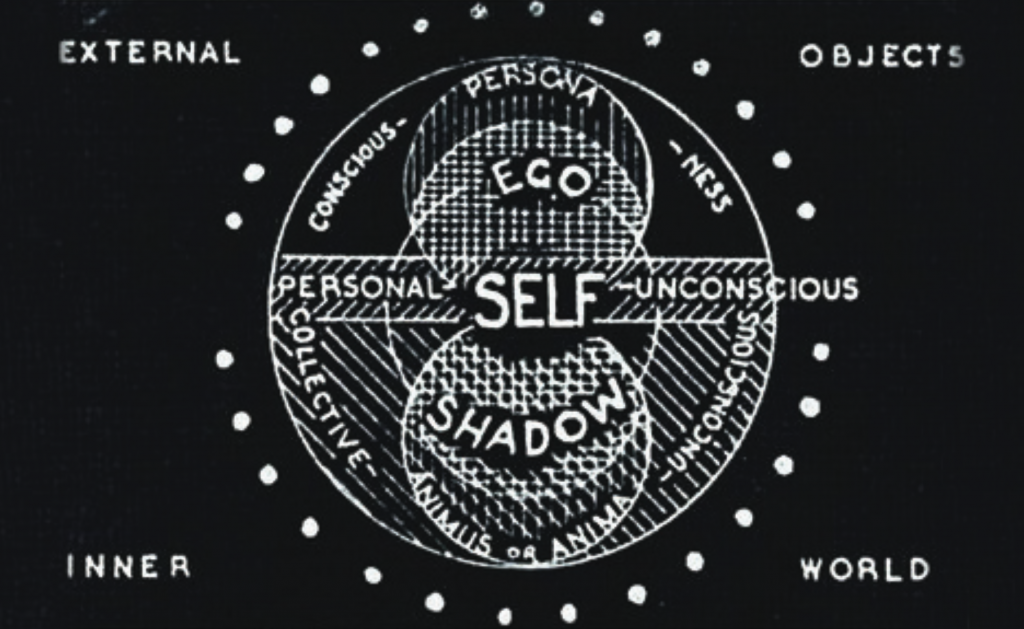
The psychotherapist is not just working for this particular patient, but for himself as well and his own soul, and in so doing he is perhaps laying an infinitesimal grain in the scales of humanity’s soul. Small and invisible as this contribution may be, it is yet an opus magnum.
(Carl Gustav Jung)
COURSE OVERVIEW
Twelve modules, covering the foundational concepts of Jungian theory and application.
These modules include:
* Access to ‘Jung Unplugged’ – a comprehensive lexicon of Jungian Concepts.
* A three-hour webinar with the course presenter, a formal lecture and an extended Q&A. These webinars are presented live and recorded for those unable to make the live webinar.
* Essential reading, set by the module presenter and made available as part of the programme reading pack.
* A self-reflective application for each module.
* Access to a student forum to download the learning material, complete your questionnaires, post applications and questions and interact with other members of the international student body.
Course process per module:
* Access and download your reading pack for the module.
* Watch recorded lecture
* Work through Applications provided to deepen you personal experience and understanding of the module content.
* Attend live webinar Q&A on the topic for the month or watch the recording.
* Complete a 15 question multiple choice questionnaire – Only required should you wish to receive CPD- Continuing Professional Development Points/ CEU – Continuing Education Units.
The course fee includes:
* Webinars
* Course materials
* Access to the student forum
Time requirement:
You will need a total of three to five hours per module. All studying can be done in your own time.
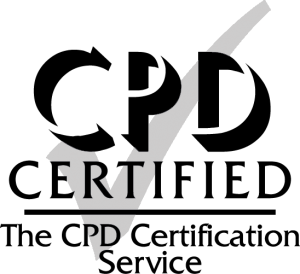 Accreditation:
Accreditation:
This course is certified with 84 CPD’s.
PLEASE NOTE
This online course is aimed specifically at those in the psychotherapeutic field: clinicians, psychotherapists, counsellors and psychologists, wishing to either be introduced to or deepen their existing knowledge of Jungian psychology.
NB. The course is not a formal training or accreditation as a Jungian analyst. It is offered as continuing professional development for practising psychotherapists. In terms of the number of CEUs offered for the course, you will need to check with your local accreditation body.
For the full syllabus, module descriptions and faculty information see below.
ETHOS
The Centre for Applied Jungian Studies exists to promote the research, learning and dissemination of depth psychology and studies, with a focus on Jungian psychology, in a non-linear, non-traditional, fashion. Utilising disruptive technologies the Centre delivers the concepts and applications, developed within the framework of depth psychology, to a wider audience than has historically been given access to these ideas and tools. This approach reflects the global paradigm shift to learning being made more widely and democratically accessible. This is facilitated in part by the non-localisation opportunities for learning created by the WWW, and the radical evolution and sophistication of communication platforms over the last two decades. This aspiration maintains the highest regard for the value and integrity of depth psychological theory and practice. It acknowledges the debt owed to the pioneers of depth psychology and their legacy, as well as the tireless work of the clinicians and scholars who have furthered the field of study over the last century.
The Centre for Applied Jungian Studies is committed to excellence in research, teaching and practice.
‘Jungian and post-Jungian Clinical Concepts’ was inspired by the challenge presented by the Jungian scholars and clinicians at the ‘Spectre of the Other in Jungian Psychology,’ an International Association of Jungian Studies conference that took place in Cape Town in 2017. Where, the urgent need to reach those previously excluded from the teaching and ideas of Jungian psychology, be it for reasons of location, economics or historical prejudices, was unequivocally sounded. In its own modest way, this course sets out to achieve that. By virtue of offering top-class tuition in Jungian psychotherapy, outside of its traditional setting, being non-localised (online), and a tiered fee structure, the aim is explicitly to democratise the learning opportunities offered by Jungian psychology, broaden the reach of these tools and to be as inclusive as possible.
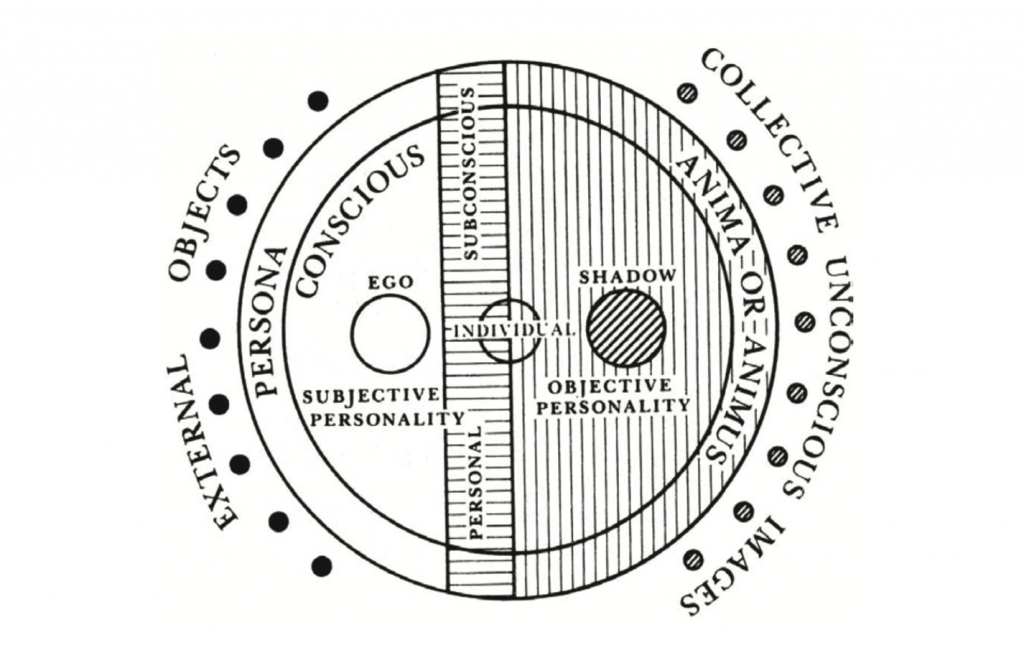
MODULES
The Therapy Relationship and the Goals of the Work
presented by Dr Mark Winborn
Cultivating the Analytic Attitude: Cultivating an analytic attitude is fundamental to becoming an analyst or depth therapist. Without the development of this foundation to our work, Analytical Psychology (or any form of psychoanalytic work) becomes just another psychotherapy. Most other psychotherapies can be practiced primarily via the application of theory and technique, without serious consideration of the therapist’s “attitude.” Jung addresses the importance of the analytic attitude when he says, the analyst must “believe implicitly in the significance and value of conscious realization, whereby hitherto unconscious parts of the personality are brought to light and subjected to conscious discrimination and criticism. It is a process that requires the patient to face his problems and that taxes his powers of conscious judgment and decision. It is nothing less than a direct challenge to his ethical sense, a call to arms that must be answered by the whole personality.” To explore the issue of “cultivating the analytic attitude” we will examine a number of fundamental questions, such as: what is analysis or analytic therapy, what is the goal or aim of analysis, and what is required of the analyst or depth therapist?
We will also explore how related ideas, such as reverie, internal state of the therapist, imaginal process, psychic reality, and the symbolic attitude play into the overarching concept of the analytic attitude.
Application of the Analytic Attitude through the Interpretive Process: The issue of interpretation is fundamental to the process of analysis or any psychology of depth. It is the medium by which our art form is transmitted. If the analytic vessel is thought of as our canvas then our interpretations are the paints with which the depth psychologist participates with the patient in the creation of the painting. What one chooses to say in analysis, why one chooses that particular thing to say, how one says it, when one says it – these are some of the building blocks of the interpretive process. It is an important tool to develop proficiency with, but it can’t be used effectively if we don’t develop fluency with it.
Archetypes and the Collective Unconscious
presented by Dr. Mark Saban
This course addresses the place of Archetypes and the Collective unconscious in Jung’s psychology, with a particular focus on clinical applications of these concepts. In the first part of the seminar we will outline Jung’s ideas about archetypes and the role they play within his overall psychology, we will then move onto various critical approaches to the archetype that have arisen in post
-Jungian literature. With these critiques in mind, we will then move onto the ways archetypes show up in clinical practice and how archetypal theory can inform work with patients, with a particular emphasis upon the experiential dimension of the archetype and its relation to dream, complex, and symptom.
Cultural Complexes in the Life of Individuals, Groups and Nation States
presented by Thomas Singer M.D.
Cultural Complexes are ubiquitous in the psyches of individuals and groups. Their deep and unconscious effects can be enormously destructive as well as provide a strong sense of identity.
This lecture will explore the notion of cultural complexes and how they live inside us as individuals, as members of groups, and as citizens of nation states. The lecture is based on a series of articles and books that I have written and edited over the past two decades that have focused on complexes in Australia, Latin America, Europe, Southeast Asia and the United States.
The initial part of the lecture will provide a history of the development of the idea in the Jungian tradition and a working definition of the concept through elucidating its characteristics. We will then explore the notion through examples both in individuals and in large groups. In the context of unfolding events in Russia, the Ukraine, and the response of the rest of the world, we will work together to see how the concept of cultural complexes may shed some light on this current world crisis.
Theatres of Individuation
presented by Dr Paul Attinello
This module explores the meaning of individuation through stage representations of crisis and transformation. Individuation is a central idea in Jungian psychology. The project of developing and integrating one’s self over the course of a lifetime is rarely explored in other schools of depth psychology; we will consider some of the meanings and opportunities that open out from this idea. I will use scenes from opera, music theatre, and film to explore individuation as it appears in different characters and narratives.
We will see how staged symbols connect unconscious archetypal material with ego consciousness in ways that support and direct various processes. The amplified images, patterned situations, and articulated emotions of screen and stage works are designed to reflect not merely our desires, but all the things that engage us, positive and negative. We use these materials to dream ourselves through the joys and disasters that make up our lives, opening up unexpected possibilities for our own individuation.
Complexes and the early relational origins of the inner landscape
presented by Dr. Sue Austin
Dr. Austin will discuss two of her papers which were published in the Journal of Analytical Psychology in 2016 entitled “Working with chronic and relentless self- hatred, self-harm and existential shame: a clinical study and reflections” parts I and II. The first of these papers was jointly awarded the JAP’s Fordham Prize for 2016 (see https://thejap.org/the-michael-fordham-prize). These papers explore some of the theoretical and experiential reference points that have emerged in her work with people whose relationship to their body and/or sense of self is dominated by self- hatred and (what Hultberg describes as) existential shame.
The first paper focuses on self-hatred and the second paper focuses on shame. The second paper continues the discussion of the clinical material introduced in the first paper in the light of Jung’s and Laplanche’s emphasis on experiences of unresolvable, non-pathological ‘foreignness’ or ‘otherness’ at the heart of the psyche. Images, metaphors, elements of clinical experience, and working hypotheses from a number of analytic traditions are used to flesh out this exploration.
Real Dialogue for Opposing Sides: Respecting Difference Without Compromising.
presented by Dr Polly Young-Eisendrath
We live in a world of deaf ears and grotesque caricatures. Deadening power struggles, dehumanizing conflicts, and relentless calling out of others’ faults and short-comings have replaced debate and dialogue. In order for our relationships and our democracies to survive we need to believe that we can listen when we are in conflict and follow another’s thoughts and feelings, even though we disagree sharply.
This presentation will introduce a skill, a facilitated method, and a practice called “Real Dialogue for Opposing Sides.” Real Dialogue is the outgrowth of Dialogue Therapy for Couples which has its roots in mindfulness, psychoanalysis, and psychodrama. Real Dialogue allows individuals to tolerate their perceptions, emotions and thoughts in such a way that they can speak for themselves (subjectively, modestly) while also hearing another’s point of view, even when it’s deeply troubling and emotionally activating. Real Dialogue is founded on the fact that our experiences are highly individual and often misperceived by others, especially when they are making negative attributions about us.
After decades of refining Dialogue Therapy for couples, I am now introducing a skill and a method to end polarization and increase differentiation in difficult conversations.
At the end of this workshop, you will be able to:
-
Define and give an example of a “difficult conversation;”
-
Identify and describe the three skills of Real Dialogue: Speaking for Yourself, Listening Mindfully, and Remaining Curious;
-
Discuss how polarization leads to de-humanization in difficult conversations;
-
Describe why human beings need enemies in order to feel good about themselves;
-
Recognize how/why Real Dialogue is different from Conflict Resolution, Nonviolent Communication and other forms of “conscious conversation.”
Social and political issues: Race and Class in analysis
presented by Ruth Williams MA
Race and Class permeate every aspect of our lives. These linked matters will be explored both clinically and more generally from a post-Jungian perspective. They will be seen as part of an intersectional approach which encompasses our varying cultural influences.
My aim is to invoke an open atmosphere in which we can all be free to fail, or say things which feel uncomfortable so that we can explore these issues without feeling self-conscious or frozen by guilt or fear. Racism and class prejudice are forms of hatred which we can all fall into at times. He who casts the first stone….
These topics inevitably touch on the topic of refugees. More pertinent than ever during this alarming period of warring conflict in Ukraine, it is useful to remember these words:
“Every American who ever lived, with the exception of one group, was either an immigrant himself or descendent of immigrants” (from JFK, A Nation of Immigrants. HarperCollins 1964).e
The Political Psyche: Clinical and Cultural Issues
presented by Prof Andrew Samuels
Andrew Samuels shows how the inner journey of analysis and psychotherapy and the passionate political convictions of the outer world are linked. He brings an acute psychological perspective to bear on public themes such as the market economy, environmentalism, nationalism, and anti-Semitism. He also lays bare the hidden politics of the father, the male body, and of men’s issues generally.
He explores this topic true to his aim of setting in motion a two-way process between depth psychology and politics. What do analysts and psychotherapists do when their patients/clients bring overtly political material into the clinical setting? And what does this reveal about the therapists own political attitudes?
Ecopsychology
presented by Dr. Mary-Jayne Rust
Jung is one of the few psychotherapists who has written extensively about the relationship between inner and outer nature. Through growing up in the Swiss Alps he knew about encounters with the numinous and the power of nature to heal the human soul. He warned of the consequences of our separation from the rest of nature and of taking from the earth with no reciprocity or respect. The result is a loss of soul and a rampant industrial growth culture trying to fill the hole.
In this webinar we will explore how these issues come into our work as therapists. What are the archetypal forces at play? Is there a link between global crisis and symptoms such as depression, addictions, anxiety? Do clients talk about their concerns about the world, e.g. climate change, and if so how do we help them explore their anxieties? What are their dreams saying?
Lecture on Jung and the Arts
presented by Dr Roula-Maria Dib
This lecture explores the therapeutic effects and boundary-breaking roles of the arts by highlighting the important functions of artworks lying in their abilities to reflect the psyche’s vision-making, to reveal the depths of the unconscious (no matter how conscious it is), and to have their own personalities that match the archetypal voice activated while producing them. Both in its individual and collective application and sharing, creativity presents itself as a learning, emotional, and mental aid, especially during times of hardship (for example, more poets and artists were increasingly producing and sharing their work with each other via creative online platforms from around the world, especially during lockdown). The journey of bringing dark unconscious content into the light of consciousness through the arts can be considered a healing process. The space provided by active imagination, er when its elements are shown to us from a distance, played out by someone else.
automatic writing, poetic inquiry, dreamwork, Jungian Arts-Based Research, and other symbolic engagements through literary and visual art can open pathways for those seeking to articulate, process, and assimilate their thoughts and feelings. As the editor of literary and arts journal Indelible, producer of online literary event series Indelible Evenings, as well as director of Jungian creative salon Psychreative, Dr. Dib will discuss the therapeutic aspect of poetry and other forms of art which manifested during the unfolding of a creative community at times of multiple global crises. The practice of creative writing/painting, as well as the bonding nature of sharing this creativity with a community became both a learning method and a healing practice, one that offers an outlet for thoughts, images and feelings to be expressed, explored, as well as addressed.
Dreams and Active Imagination
presented by Prof Dr Verena Kast
Jung started his scientific career with the association test and the complex theory. That means: He started with the studies of emotions, understanding emotions as the basis of what it means to be a human being. “The essential basis of our personality is affectivity. (Footnote: For feeling, sentiment, emotion, affect, Bleuler proposed the expression of affectivity.) Thought and action are, as it were, only symptoms of affectivity.” (CW 3, par 78: (1906)
Based on this finding, Jung established a theory of the complexes, and in short, a link between the complexes and dreams. (Complexes are the architects of dreams.) In the meantime, one hundred years later, we are confronted with affective neuroscience and Panksepp’s contention “it is clear that psychotherapy is in the midst of an emotion revolution. The primal affective aspects of mind are no longer marginalized, but, rather, are recognized as the very engines of the psyche.”
It seems the right moment to enter into this conversation and to bring the ideas of Jung into contact with these new ideas, not only those of Panksepp, but also those of Damasio, de Waal and others. These new findings and ideas support the theories of Jung and show how remarkable they were at his time and also nowadays in the current discussion. Perhaps we can, thereby, appreciate more the basic theories of Jung. The findings of affective neuroscience can have an input for our work; they can influence our understanding and our working with complex episodes and with dreams. So: On the one hand, we will see that the basic ideas of Jung are in accordance with findings of affective neuroscience, while on the other hand, the findings of affective neuroscience let us better understand the dynamics of complexes, give us new ideas for clinical work with complexes and dreams, and also new ideas about the roots of human beings.
Spirituality in the Consulting Room
presented by Dr Murray Stein
Since the 1990’s, clinical psychologists (in the United States, primarily) have carried out a significant amount of research regarding spirituality in clinical practice. Questions that have been raised and addressed in many articles, books and conferences in the last several decades include: What is the difference between religiosity and spirituality? Should questions regarding these matters be addressed in the context of psychotherapeutic practice? Does it make a difference if the therapist has religious commitments or a spiritual attitude?
Jungian psychotherapy has included consideration of the numinous since the days of the founding figures, and many books have been written on this topic. It is still an open question, however, just how important spirituality or numinous experience might be for psychic healing and mental health. According to Jung, it is the numinous experience that overcomes neurosis. This lecture will take a fresh look at this topic and offer some examples of spirituality in practice, both positive and negative.
BONUS LECTURES
The Therapeutic Alliance: Transference and Countertransference
presented by Prof Andrew Samuels
We will talk about some very different approaches to the therapy relationship. These will range from understanding it as an ordinary human relationship, to considering various relational approaches, to discussion of transference-countertransference.
Jung’s views on these matters will be discussed and his pioneering status in terms of today’s interest in ‘relationality’ will be highlighted. In addition, the question of what psychotherapy is for, and what its aims and goals might be, will receive attention.
Ego, Shadow and Jung’s Four Stages of Transformation
presented by Stephen Farah MA (HOD)
The confrontation with the shadow: personally, collectively and archetypally is the first stage and keystone of the journey to consciousness, wholeness and in Jung’s terms, individuation. This module will focus on identifying, unmasking and engaging with the subject’s shadow material, both in its personal and subjective aspect and in its collective constellation in the therapeutic setting. This module will consider the definitions and roles of both the ego and the shadow and their dialectical relationship in Jungian analysis. We will look at questions of when and where the ego is functional and where it is inhibiting the subject’s individuation process.
We will consider how engagement with the shadow can break an ego deadlock and potentially fertilise the subject’s identity and individuation process, and where such engagement may be overwhelming for the ego. Once identified, Jung provides a four-step process for engaging and redeeming or transmuting shadow material: confession, elucidation, education and transformation. These steps mirroring the four alchemical stages of transmutation: Nigredo, Albedo, Citrinitas and Rubedo. We will consider each of these stages in detail and their practical application in therapy.
PROGRAM FACULTY
Stephen Farah (HOD)
 Stephen Farah, MA, is the co-founder and head of learning and research at The Centre for Applied Jungian Studies South Africa. He is the current co-Chair of the International Association of Jungian Studies. Stephen holds an honours degree in analytical philosophy from the University of the Witwatersrand and a Master’s degree in Jungian and Post Jungian Studies from the University of Essex. Stephen’s areas of interest include psychoanalysis, film, the philosophy of language, consciousness, individuation and futurism. His paper ‘True detective and Jung’s four steps of transformation’ was published in The Routledge International Handbook of Jungian Film Studies. He is currently compiling and editing (with co-editor Marybeth Carter) an anthology of papers for ‘The Specter of the Other: crises and opportunity‘.
Stephen Farah, MA, is the co-founder and head of learning and research at The Centre for Applied Jungian Studies South Africa. He is the current co-Chair of the International Association of Jungian Studies. Stephen holds an honours degree in analytical philosophy from the University of the Witwatersrand and a Master’s degree in Jungian and Post Jungian Studies from the University of Essex. Stephen’s areas of interest include psychoanalysis, film, the philosophy of language, consciousness, individuation and futurism. His paper ‘True detective and Jung’s four steps of transformation’ was published in The Routledge International Handbook of Jungian Film Studies. He is currently compiling and editing (with co-editor Marybeth Carter) an anthology of papers for ‘The Specter of the Other: crises and opportunity‘.
Prof Andrew Samuels (Programme Consultant)
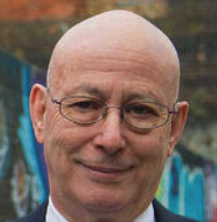 Andrew Samuels is Professor of Analytical Psychology at the University of Essex and a Jungian analyst in practice in London. He has been referred to as ‘the most celebrated of today’s Jungian analysts’ (in American Imago). He is a former Chair of the UK Council for Psychotherapy. His many books have been translated into 21 languages and include the ground-breaking Jung and the Post-Jungians (1985), A Critical Dictionary of Jungian Analysis (1986), The Father: Contemporary Jungian Perspectives (1986), Psychopathology: Contemporary Jungian Perspectives (1989), and Persons, Passions, Politics, Psychotherapy: Selected Works of Andrew Samuels (2015). For more information visit https://www.andrewsamuels.com/.
Andrew Samuels is Professor of Analytical Psychology at the University of Essex and a Jungian analyst in practice in London. He has been referred to as ‘the most celebrated of today’s Jungian analysts’ (in American Imago). He is a former Chair of the UK Council for Psychotherapy. His many books have been translated into 21 languages and include the ground-breaking Jung and the Post-Jungians (1985), A Critical Dictionary of Jungian Analysis (1986), The Father: Contemporary Jungian Perspectives (1986), Psychopathology: Contemporary Jungian Perspectives (1989), and Persons, Passions, Politics, Psychotherapy: Selected Works of Andrew Samuels (2015). For more information visit https://www.andrewsamuels.com/.
Thomas Singer M.D.
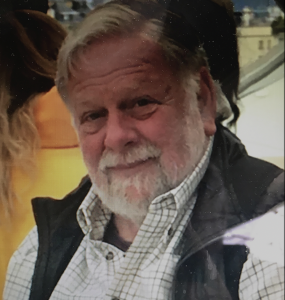
Thomas Singer, MD is a psychiatrist and Jungian psychoanalyst who trained at Yale Medical School, Dartmouth Medical School, and the C.G. Jung Institute of San Francisco. He is the author and editor of many articles and books, including a series of books on cultural complexes in Australia, Latin America, Europe, Southeast Asia, and the United States. Cultural Complexes and the Soul of America won the IAJS award for Best Edited Book of 2020. In addition, Dr. Singer has co-edited a series of books on Ancient Greece/Modern Psyche. He serves on the Board of ARAS (Archive for Research into Archetypal Symbolism) and has edited ARAS Connections for many years.
Roula-Maria Dib

Roula-Maria Dib (PhD, University of Leeds) is an award-winning literary scholar, poet, and editor whose research interests include literature, creative writing, and Jungian psychology. She is the winner of the British Council’s Alumni Awards 2021-2022 for the Culture and Creativity category in the UAE and a recipient of the AUD Provost’s Award for Outstanding Literary Achievement 2020; her book, Jungian Metaphor in Modernist Literature (Routledge, 2020) was shortlisted as a finalist for the International Association for Jungian Studies book awards, and some poems from her collection, Simply Being (Chiron Press, 2021) have been nominated for the Pushcart Prize. Roula-Maria is also the founding editor of literary and arts journal, Indelible, and creative producer of literary event series, Indelible Evenings, as well as Psychreative, a virtual salon for researchers, artists, and writers with a background in Jungian psychology. Her MOOC, “Why Online Creative Communities Matter”, is featured on Academia.edu. She is currently a professor of English at the American University in Dubai and member of The Poetry Society, the Royal Society of Literature, the British Association for Modernist Studies, the Scientific Committee of the Universale Biblion Series, and the International Association for Jungian Studies, and the Jungian Society for Scholarly Studies.
Dr Sue Austin
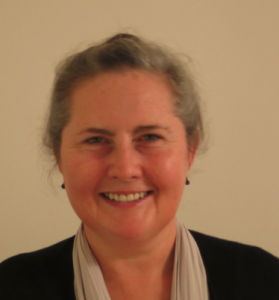 Sue Austin, Ph.D. and member ANZSJA, works in private practice in Sydney and is a training analyst with the Australian and New Zealand Society of Jungian Analysts. She specializes in working with adults who have eating disorders and/or disorders of the self (i.e., people whose experience of subjectivity is abject) and her practice comprises general analytic work with adults and supervision of clinicians in Australia and internationally. Sue has run numerous clinical workshops and seminars in Australia, New Zealand, the UK, Europe and the USA, and has published several clinical papers and a book. http://www.sueaustin.net.au/
Sue Austin, Ph.D. and member ANZSJA, works in private practice in Sydney and is a training analyst with the Australian and New Zealand Society of Jungian Analysts. She specializes in working with adults who have eating disorders and/or disorders of the self (i.e., people whose experience of subjectivity is abject) and her practice comprises general analytic work with adults and supervision of clinicians in Australia and internationally. Sue has run numerous clinical workshops and seminars in Australia, New Zealand, the UK, Europe and the USA, and has published several clinical papers and a book. http://www.sueaustin.net.au/
Dr Murray Stein
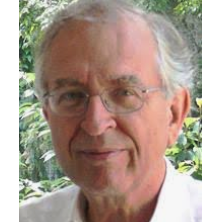 Murray Stein, Ph.D. is a Jungian psychoanalyst practicing in Zurich, Switzerland. He is a former president of the IAAP and is a training and supervising analyst at ISAP Zurich. His books include Jung’s Treatment of Christianity (1985), In MidLife (1983), Jung’s Map of the Soul(1998), Minding the Self (2014), Outside Inside and All Around (20170 and most recently The Bible as a Dream (2018). For more information visit his website http://murraystein.com/.
Murray Stein, Ph.D. is a Jungian psychoanalyst practicing in Zurich, Switzerland. He is a former president of the IAAP and is a training and supervising analyst at ISAP Zurich. His books include Jung’s Treatment of Christianity (1985), In MidLife (1983), Jung’s Map of the Soul(1998), Minding the Self (2014), Outside Inside and All Around (20170 and most recently The Bible as a Dream (2018). For more information visit his website http://murraystein.com/.
Dr Polly Young-Eisendrath
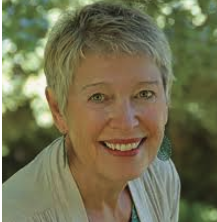 Polly Young-Eisendrath, Ph.D., Jungian Analyst, Psychologist, author; Clinical Supervisor, Norwich University, Northfield, Vermont; Clinical Associate Professor of Psychiatry, University of Vermont, Burlington, Vermont; and in private practice in central Vermont. She is chairperson of the non-profit “Enlightening Conversations: Buddhism and Psychoanalysis Meeting in Person” that hosts conferences in cities around the USA. She has published many chapters and articles, as well as fifteen books that have been translated into more than twenty languages. Her most recent books are The Present Heart: A Memoir of Love, Loss and Discovery (Rodale, 2014); The Self-Esteem Trap: Raising Confident and Compassionate Kids in an Age of Self-Importance (Little, Brown, 2008); and The Cambridge Companion to Jung: New and Revised, of which she is co-editor with Terence Dawson (Cambridge University Press, 2008). Polly’s forthcoming book, True Love Ways: Relationship as Psycho-Spiritual Development, will be published in 2018. For more information visit her website https://young-eisendrath.com/.
Polly Young-Eisendrath, Ph.D., Jungian Analyst, Psychologist, author; Clinical Supervisor, Norwich University, Northfield, Vermont; Clinical Associate Professor of Psychiatry, University of Vermont, Burlington, Vermont; and in private practice in central Vermont. She is chairperson of the non-profit “Enlightening Conversations: Buddhism and Psychoanalysis Meeting in Person” that hosts conferences in cities around the USA. She has published many chapters and articles, as well as fifteen books that have been translated into more than twenty languages. Her most recent books are The Present Heart: A Memoir of Love, Loss and Discovery (Rodale, 2014); The Self-Esteem Trap: Raising Confident and Compassionate Kids in an Age of Self-Importance (Little, Brown, 2008); and The Cambridge Companion to Jung: New and Revised, of which she is co-editor with Terence Dawson (Cambridge University Press, 2008). Polly’s forthcoming book, True Love Ways: Relationship as Psycho-Spiritual Development, will be published in 2018. For more information visit her website https://young-eisendrath.com/.
Dr Paul Attinello
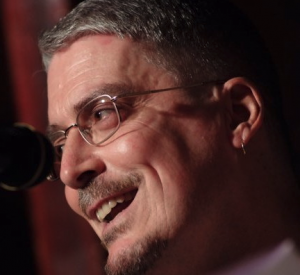 Paul Attinello is a diplomate analyst who studied at the C. G. Jung-Institut in Zürich, as well as a senior lecturer at Newcastle University. He has taught at the University of Hong Kong and as a guest professor at UCLA, received his PhD from UCLA, and has lived and worked on four continents. He has published in a number of journals, collections and reference works on contemporary musics, HIV/AIDS, and cultural, philosophical and psychological topics.
Paul Attinello is a diplomate analyst who studied at the C. G. Jung-Institut in Zürich, as well as a senior lecturer at Newcastle University. He has taught at the University of Hong Kong and as a guest professor at UCLA, received his PhD from UCLA, and has lived and worked on four continents. He has published in a number of journals, collections and reference works on contemporary musics, HIV/AIDS, and cultural, philosophical and psychological topics.
Ruth Williams
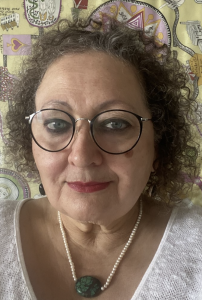 Ruth Williams is a Training and Supervising Analyst at the Association of Jungian Analysts in London. She is the author of Jung: The Basics (2019 Routledge) and Exploring Spirituality from a Post-Jungian Perspective: Clinical and Personal Reflections (Routledge forthcoming 2023). See: www.RuthWilliams.org.uk.
Ruth Williams is a Training and Supervising Analyst at the Association of Jungian Analysts in London. She is the author of Jung: The Basics (2019 Routledge) and Exploring Spirituality from a Post-Jungian Perspective: Clinical and Personal Reflections (Routledge forthcoming 2023). See: www.RuthWilliams.org.uk.
Dr Mark Saban
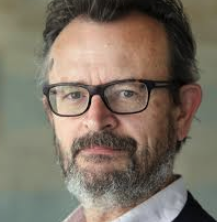
Mark Saban, P.h.D, is a senior Jungian analyst (a member of the Independent Group of Analytical Psychologists) and a lecturer in Jungian and post-Jungian studies in the Department of Psychosocial and Psychoanalytic Studies, Essex University. He recently co-edited Analysis and Activism – Social and Political Contributions of Jungian Psychology, Ed. Emilija Kiehl, Mark Saban, & Andrew Samuels (Routledge) 2016 (Finalist American Board and Academy of Psychoanalysis Book Prize, Nominated Gradiva Award for Best Edited Book). Recent articles include, Jung, Winnicott and the divided psyche, Journal of Analytical Psychology, 2016, 61, 3, 329–349 and Secrete e Bugie. Un’area cieca nella psycologia junghiana, Rivista di psicologia analitica, 2017, n. 43 Volume 95.His website http://www.marksaban.co.uk/.
Dr Verena Kast
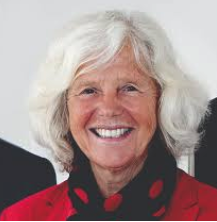 Dr. Verena Kast was Professor of Psychology at the University of Zurich and is a training analyst, supervisor and lecturer at the C.G. Jung, Institute of Zurich, Küsnacht. She is president of the Curatorium. Author of numerous books among others: The Dynamics of Symbols (1990), Father-Daughter, Mother-Son (1994), Letting go and finding yourself (1994). For more information visit her website https://www.verena-kast.ch/.
Dr. Verena Kast was Professor of Psychology at the University of Zurich and is a training analyst, supervisor and lecturer at the C.G. Jung, Institute of Zurich, Küsnacht. She is president of the Curatorium. Author of numerous books among others: The Dynamics of Symbols (1990), Father-Daughter, Mother-Son (1994), Letting go and finding yourself (1994). For more information visit her website https://www.verena-kast.ch/.
Mary-Jane Rust
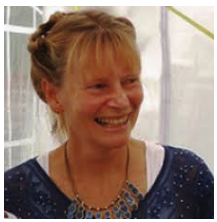 Mary-Jayne Rust is an eco-psychotherapist, inspired by trainings in art therapy, feminist psychotherapy and Jungian analysis. Journeys to Ladakh (on the Tibetan plateau) in the early 1990’s alerted her to the seriousness of the ecological crisis, and its cultural, economic and spiritual roots. Alongside her therapy practice she runs courses and lectures internationally on ecopsychology, a growing field of inquiry into the psychological dimensions of ecological crisis. Her publications can be found on www.mjrust.net, including Vital Signs: Psychological Responses to Ecological Crisis. Eds M.J. Rust & Nick Totton. Karnac, London 2011. She weaves together the ecological, psychological, political, and spiritual aspects of the earth and its people, with a keen interest in the differences between indigenous and western worldviews, and how we might enable ancient and modern to live together today. She grew up beside the sea and is wild about swimming. Now she lives and works beside ancient woodland in North London. For more information visit her site http://www.mjrust.net/.
Mary-Jayne Rust is an eco-psychotherapist, inspired by trainings in art therapy, feminist psychotherapy and Jungian analysis. Journeys to Ladakh (on the Tibetan plateau) in the early 1990’s alerted her to the seriousness of the ecological crisis, and its cultural, economic and spiritual roots. Alongside her therapy practice she runs courses and lectures internationally on ecopsychology, a growing field of inquiry into the psychological dimensions of ecological crisis. Her publications can be found on www.mjrust.net, including Vital Signs: Psychological Responses to Ecological Crisis. Eds M.J. Rust & Nick Totton. Karnac, London 2011. She weaves together the ecological, psychological, political, and spiritual aspects of the earth and its people, with a keen interest in the differences between indigenous and western worldviews, and how we might enable ancient and modern to live together today. She grew up beside the sea and is wild about swimming. Now she lives and works beside ancient woodland in North London. For more information visit her site http://www.mjrust.net/.
Dr Mark Winborn
 Mark Winborn, PhD, NCPsyA is a Jungian Psychoanalyst and Clinical Psychologist. He received his BS in Psychology from Michigan State University in 1982, his MS and PhD in Clinical Psychology from the University of Memphis in 1987, and his certificate in Jungian Analysis from the Inter-Regional Society of Jungian Analysts in 1999. From 1988 – 1990 he was the staff psychologist at the United States Military Academy, West Point, New York. Dr. Winborn is a training/supervising analyst of the Inter-Regional Society of Jungian Analysts, the C.G. Jung Institute in Zurich, Switzerland, and the Moscow Association for Analytical Psychology post-graduate studies program. He currently serves on the American Board for Accreditation in Psychoanalysis and the Ethics Committee of the International Association for Analytical Psychology. Dr. Winborn is on the editorial boards of the Journal of Analytical Psychology and the Journal of Humanistic Psychology, as well as being a member of the National Association for the Advancement of Psychoanalysis. His publications include Deep Blues: Human Soundscapes for the Archetypal Journey (2011) and Shared Realities: Participation Mystique and Beyond (2014), and Interpretation in Jungian Analysis: Art and Technique (2018), as well as book chapters, articles, and book reviews. Since 1990 he has maintained a private practice in Memphis, Tennessee, USA where he was the Training Coordinator for the Memphis-Atlanta Jungian Seminar from 2010 – 2016. He is a frequent invited speaker for both national and international seminars and conferences.
Mark Winborn, PhD, NCPsyA is a Jungian Psychoanalyst and Clinical Psychologist. He received his BS in Psychology from Michigan State University in 1982, his MS and PhD in Clinical Psychology from the University of Memphis in 1987, and his certificate in Jungian Analysis from the Inter-Regional Society of Jungian Analysts in 1999. From 1988 – 1990 he was the staff psychologist at the United States Military Academy, West Point, New York. Dr. Winborn is a training/supervising analyst of the Inter-Regional Society of Jungian Analysts, the C.G. Jung Institute in Zurich, Switzerland, and the Moscow Association for Analytical Psychology post-graduate studies program. He currently serves on the American Board for Accreditation in Psychoanalysis and the Ethics Committee of the International Association for Analytical Psychology. Dr. Winborn is on the editorial boards of the Journal of Analytical Psychology and the Journal of Humanistic Psychology, as well as being a member of the National Association for the Advancement of Psychoanalysis. His publications include Deep Blues: Human Soundscapes for the Archetypal Journey (2011) and Shared Realities: Participation Mystique and Beyond (2014), and Interpretation in Jungian Analysis: Art and Technique (2018), as well as book chapters, articles, and book reviews. Since 1990 he has maintained a private practice in Memphis, Tennessee, USA where he was the Training Coordinator for the Memphis-Atlanta Jungian Seminar from 2010 – 2016. He is a frequent invited speaker for both national and international seminars and conferences.
TESTIMONIALS
It’s time for module 11 of my Jungian and Post Jungian clinical concepts course. This one is about dreams and active imagination. The course started in May of last year and has been both fascinating and brilliant. The course ends in May with the final module on the Political Pdyche by Professor Andrew Samuel’s. What a year its been . I couldn’t recommend the Centre for Applied Jungian Studies more highly.
Martyn Shrewsbury
Thank you for such a wonderful opportunity to hear all the lecturers! You picked up the best! I am the president of Russian Society for Analytical Psychology and attended this course with an idea to compare the level of education we give in Russia with the international. I’m really satisfied with what I got with your course. Thank you again for this wonderful experience! And good luck to you and the centre!
Natalia Pavlikova (Russia)
Really enjoyed the course. The course content and webinars were demanding but appeared to be of the highest quality. Feel I am bit wiser now.
Tony Reilly (UK)
It has been a wonderful experience. Thank you all for each month of knowledge and incredible insights .
Susana Munaux (Mexico)
I would like to thank you for setting up and running this online course. It has been a wonderful learning opportunity and really enjoyed delving deep into Jungian psychology. it was great to learn from the best authors and practitioners worldwide. It definitely added much value to my practice as coach and career counsellor.
Anne Robert (Mauritius)
A warm and grateful “THANK YOU” for your work, to all Professor and teacher. I had much pleasure deepening my understanding of Jungian thoughts.
Denis Casarsa (Koh Samui)
I have really enjoyed the course and valued the quality of the seminar presentations. I have had an opportunity to extend and deepen my understanding. Thank you to all involved .
Sally Dhruev (UK)
This course was a deeply enriching experience for me.
Valeria Almada (Mexico)
This course was truly rich and I benefited greatly from it. It had really good material and lecturers, and I loved how they covered so many different aspects of such work.
Carli Castellani (US)
I don’t think I would of had access to this wealth of information by experts from around the world if it had not been for this opportunity. I have been interested in Jungian analysis and would like to peruse it but it’s really challenging finding the right route. I feel inspired and have all this knowledge from the course.
Thanks again not only for the contents but making it affordable and available online!
Stacey Coconas (South Africa)
Thank you very much and Congrats to CAJS for the wonderful course.
Juliana Navarro (Rio de Janeiro)
Thank you so much Anja- it’s been a brilliant course- very enjoyable, stimulating and informative.
Linda-Mary Edwards (UK)
Thanks again for putting together such an interesting course that really informs about key concepts of Jungian thought from a contemporary perspective.
Catriona MacInnes


